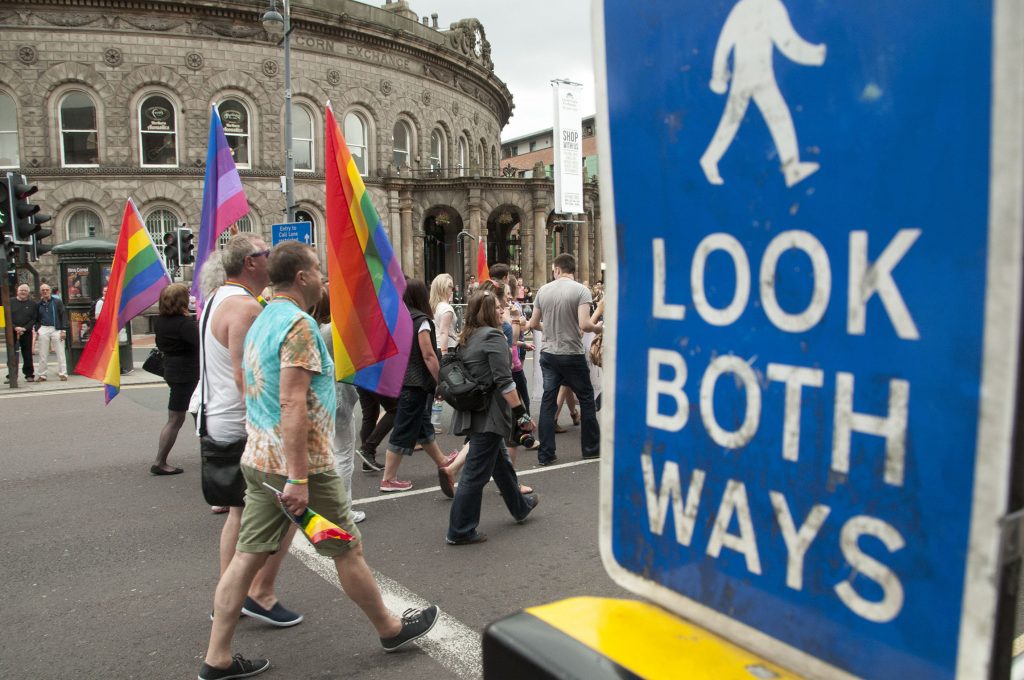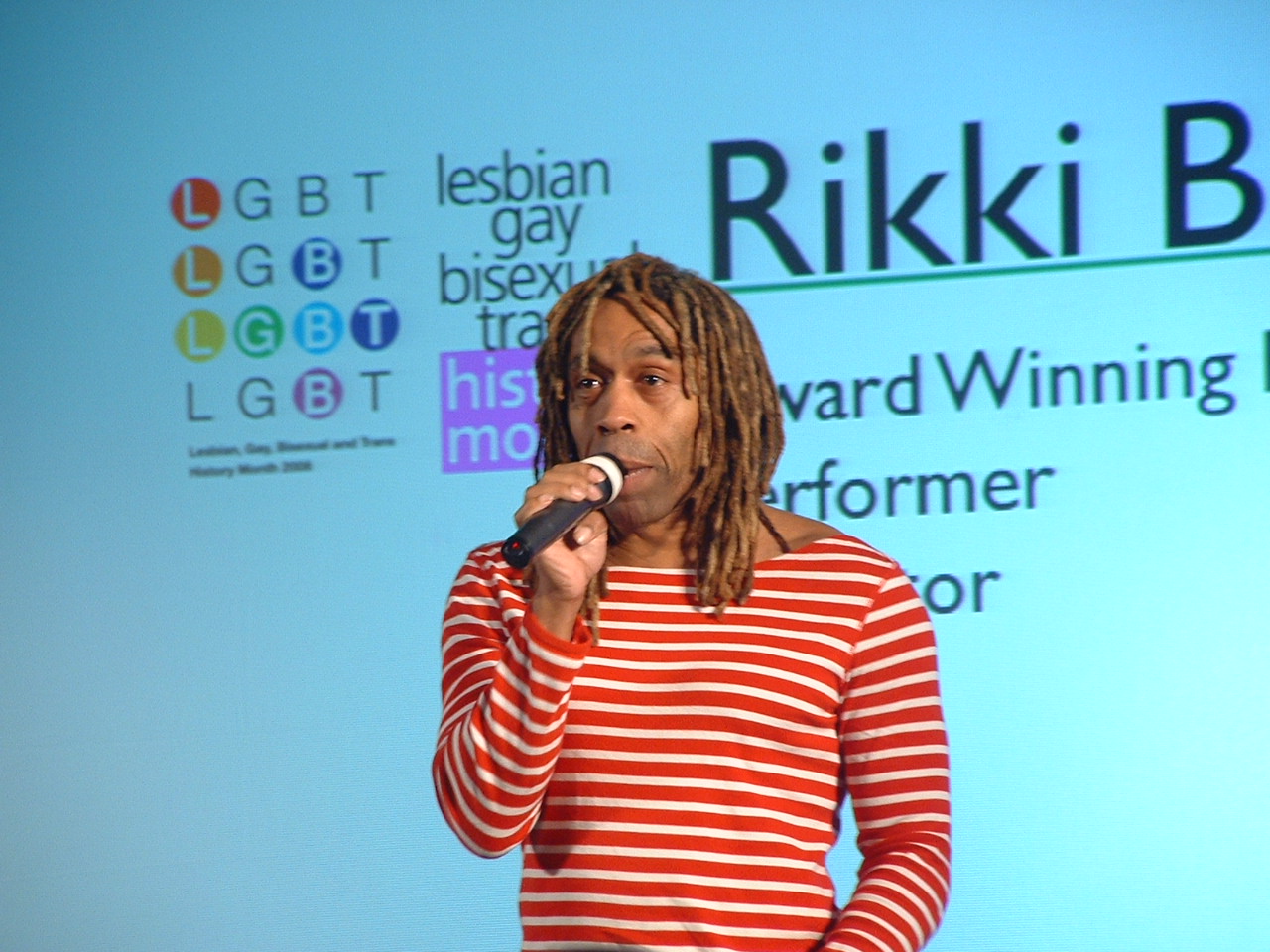In the early hours of 28 June, 1969, police officers raided New York gay bar The Stonewall Inn – sparking a riot which would go on to transform the landscape of LGBT rights in the US.
Nine years later, a 17-year-old Rikki Beadle-Blair was enjoying an evening at a gay cabaret in south London when a drag queen – dressed as one of the rioters – strode out on stage to perform a monologue.
“He was basically shouting down the audience saying: ‘You don’t respect the people who started this,’” Rikki said, admitting that he too was unaware of what the riots were at that time. “It really struck me,” he added.
Moved by the performance, he and his best friend began researching what happened on that fateful night which gave birth to an entire civil rights movement. A year later he was writing a one-man show about a brown boy running away from his home in the Deep South and getting caught up in the storm.
Flash forward to the early 90s, Rikki receives a call from the late filmmaker Nigel Finch. He is asked if he would like to write the screenplay for what would become cult classic docudrama Stonewall. “Yes,” he replied, before immediately running out to read everything he could about the riot.
“One thing that was really important to me was that – having seen that monologue – the drag queens, trans people and people of colour would be a central part of it,” he said. “I wanted the drag queens to be leading ladies and not be side shows or a bit of colour in the background.”
Close friends Marsha P Johnson and Sylvia Rivera, both trans women of colour, were said to have been central to the events that took place at Stonewall half a century ago. But, in spite of this, Rikki found that he was “met with enormous resistance” in his efforts to write a screenplay which put trans women from minority ethnic backgrounds at the forefront.
“I was fired and they said that they would get an American to write it,” he told RightsInfo. “I said: ‘I am here if you want me.’”
Lo-and-behold, after trying a number of different writers, Rikki was called upon for a second time to take on the role. “I then had amazing leverage because I knew they tried everybody else,” he laughed.
There has never been a more important time to show complete and utter unity.
Rikki Beadle-Blair
Asked what the lessons we should learn from the Stonewall riots, Rikki said: “The biggest thing is that we are a family.
“Everyone is fighting over who threw the first rock or the first punch. Was it a lesbian? A trans person? A person of colour or a white person?”
“This is a culmination of agitation, from conservative suited gays all the way to the hippie gays. Rather than fighting we should celebrate that our whole family got us to where we got to.”
He added: “We have still got a long way to go. But we should be proud of where we got to together.”
Are Things Moving Backwards For LGBT+ Rights?

Image Credit: Bryan Ledgard/Flickr.
Home Office statistics indicate that reported LGBT+ hate crimes have surged in recent years. While two Birmingham primary schools were dogged by months of protests led by parents who took exception to their teachings on same-sex relationships, arguing it is not age-appropriate.
When asked whether he is concerned that the gains made in LGBT+ rights are being lost, Rikki is quick to point out that homophobia “has always been there”.
“We have been oppressed in the same way for ages,” he said. “But now people are acknowledging that it exists.”
He added: “We need to defend ourselves and say that ‘queer lives matter’.
“There has never been a more important time to show complete and utter unity.”
Rikki is all too with familiar at the anger among some parents when their children’s schools adopt an LGBT-inclusive curriculum. In 2007, he toured schools across the country with a play he wrote, called Fit, aimed at tackling homophobia.
“If your child is being bullied at the age of 12 – do you think you should wait until they are 15 before teaching them?” he said. “Homophobia is not about being gay it is about being perceived as not being masculine enough.
“That is the message that needs to be put across. It should not become about faith. It should be about protecting children.”
He said that a long-term solution requires more LGBT+ people to take “control of the narrative” by becoming artists, authors, editors, among other creative professions.
“We have to take the means of production into our hands. You have to. It is not other peoples’ job to promote us,” he said. “Things are bad but we need to take control of our own narrative.”
Rikki is set to speak at the British Film Institute in London’s Southbank ahead of a screening of Stonewall tonight (June 28) and will be hosting UK Black Pride in Haggerston Park on July 7. Riot Act, a one-man play he has directed which stars Alexis Gregory, is set to run until Sunday, June 30, at the Arcola Theatre in London.
Read more:
- ‘Remember Why Pride Exists And Who The Real Heroes Are’
-
7 in 10 LGBT People Have Been Sexually Harassed At Work, Survey Finds







